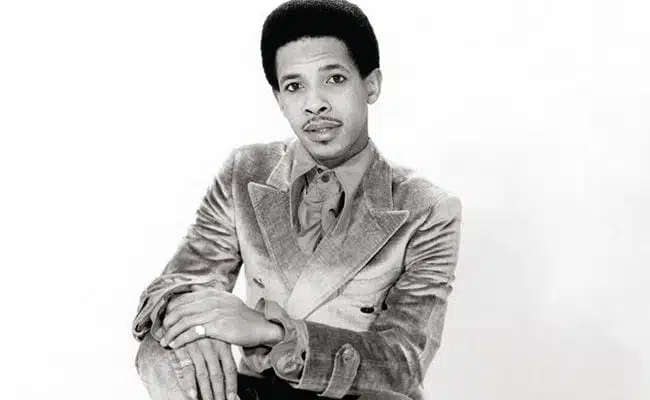
Born in Baltimore in the months after the United State entered World War II, Winfield Parker cut his musical teeth as a saxophonist with the Veejays and Sammy Fitzhugh & the Moroccans. Later, he backed Little Richard, fronted the Imperial Thrillers, and cut a series of singles for several small labels, including Ru-Jac. That imprint was founded by Rufus E. Mitchell, who’d made his way up from Florida. He’d been impressed with Parker’s work in the Imperial Thrillers but not as impressed with the band itself. Parker was quickly invited into the studio to cut a single with the Shyndells Band. Between 1964 and 1968, he’d return to track many more sides. Seventeen of those tracks form the bulk of this compilation.
“My Love for You”, the first A-side, reveals an already confident performer whose superior intonation and phrasing carry the William Boskent-penned track. If it’s not stylistically groundbreaking, it’s at least a near-perfect slice of R&B from the era. But it’s outshined by its B-side, “One of These Mornings”, which Parker wrote himself. There are country colors at its fringes and a hook that makes the listener long for long nights spent driving dimly-lit streets and waiting for the song to come on the radio.
His second Ru-Jac release in 1964 was “When I’m Alone”. Its greatest asset is the artist’s vocals. He emotes perfectly, making his audience endure every scintilla of pain he feels. But we can also feel his enthusiasm during the flipside’s exuberant celebration. “Rockin’ in the Barnyard” bangs unstoppable insistence, making it nearly impossible for the listener to sit still during the tune’s all-too-brief two minutes and 10 seconds.
1967’s “I Love You Just the Same” and “My Love” give us a sense that Parker couldn’t resist trying to compete with the outside world. Although they’re not derivative, they reveal an awareness of Otis Redding, Marvin Gaye, and James Brown. Unsurprisingly, our hero holds his own and sounds much more controlled than his contemporaries. He doesn’t give his emotions away easily and the tracks become all the more memorable as a result.
Where he really shines, though, is the horn-heavy ballad “Wondering”. It carries a sensitivity to jazz and Memphis soul. Its author’s singing has matured as he finds his rightful place in the mix, his voice soaring and seeming to mean each declaration of love and longing. The only misstep is that the false ending should have been real one. Instead, there’s a short fade that robs us of resolution.
Elsewhere, “Sweet Little Girl” attempts to re-write “Ain’t Too Proud to Beg” (released just a year prior) and too much of the Motown bag. It gets caught up on its own hooks before collapsing into an unsatisfactory end. But its B-side, the ballad “What Do You Say”, improves the situation. It’s not an out-and-out success, but Parker once more gives us a performance worthy of his considerable gifts. In fact, it’s almost always the ballads that win. If one were to point to the best track collected among these 23 pieces, it would be the sweet “A Fallen Star”. In many ways it’s a throwback to an earlier era, maybe a decade back, but it’s also Parker ripping his listeners’ hearts out one more time.
The two-part “Mr. Clean” is good fun, and its funky piano figure is among the best things on any of these sides. There’s a grit to the rhythms and the horns are impeccable, urging the vocals on, responding, leading, and in general giving the tune its edge.
The final single here, 1968’s “Funkey Party”, is nothing more than a James Brown impersonation. It’s a sad close to this chapter of Parker’s career, as he was much more than an imitator. His greatest success was yet to come, though. In 1971, he’d have a minor hit with “S.O.S.” before recording with the outfit the Best of Both Worlds. A decade later, he’d become an ordained minister though he remained comfortable with the work he’d done as a secular artist. When label boss Mitchell passed on in 2003, he passed the Ru-Jac archives to his most gifted artist, who has taken fine care of them.
No doubt it’s that access that allows us to enjoy the previously unissued material, which includes a strange take on the Boskent piece “Nothin’” and two versions of “My Love” (the latter of which is a demo performed by co-writer Wesley Aydett). Although not every forgotten or previously undiscovered artist deserves major attention, Winfield Parker is one who does, if for no other reason than his incredibly special voice. It’s really one of the most moving experiences you’ll ever have.

